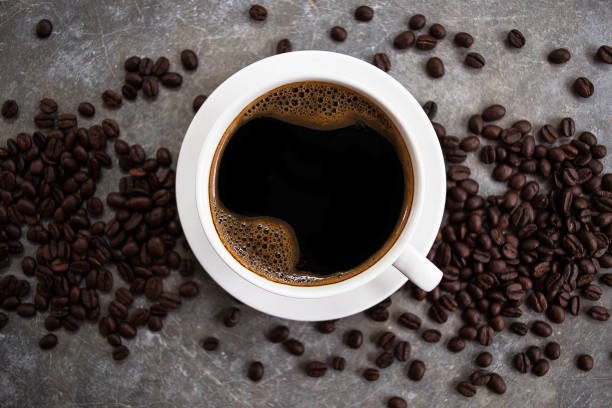For years, a heated debate has raged hotter than your morning cup of joe. Can coffee, that magical elixir of productivity and alertness, actually cause dehydration? Despite being the world’s favorite morning boost, the belief that it depletes essential moisture has endured. In this in-depth blog post, we delve into the truth about coffee and dehydration. Health enthusiasts, coffee aficionados, and the fitness-conscious, continue reading for insights that may revolutionize your connection with this beloved brew.

Understanding Dehydration
Before addressing the coffee problem, it’s crucial to grasp the concept of dehydration. Dehydration arises when the body loses more fluids than it takes in, leading to potential health issues. The causes are diverse, ranging from insufficient water intake to excessive sweating, vomiting, or diarrhea. Symptoms can vary from mild to severe, such as heightened thirst, dry mouth, fatigue, and dizziness. Severe dehydration warrants immediate medical attention.
Debunking the Myth
For many, the initial response to the link between coffee and dehydration may be one of skepticism. After all, you’re drinking a liquid, right? The prevailing notion suggests that due to caffeine’s diuretic properties, it must deplete your body of water. Yet, the connection between coffee and dehydration is multifaceted.
It’s time to debunk the myth. Not all fluids that act as diuretics leave you dehydrated. Or if they do, the effect could be so minor that it’s negligible. Diuretics increase urine production, but they don’t necessarily deplete the body of water if you’re still consuming adequate fluids throughout the day.
Coffee’s Hydration Impact
Studies and expert opinions shed light on the topic. Recent studies suggest that caffeine may not dehydrate as much as previously thought. A study by the Department of Sport, Exercise, and Rehabilitation at Northumbria University in the UK found that moderate coffee consumption (up to four cups daily) hydrates as effectively as water. The key lies in the quantity; excessive caffeine intake can increase urine output, but in moderation, it does not pose a hydration risk.
Nutritionists and medical professionals concur that a single cup of coffee is unlikely to dehydrate the body if it is generally well-hydrated. However, it is important to monitor your body’s response and adjust coffee consumption accordingly.
Balancing Coffee Consumption
Whether you prefer espresso or pour-over coffee, you can savor your brew without affecting your hydration levels.
Drink water alongside your coffee
Incorporate a glass of water with your coffee consumption. Not only will it help balance potential diuretic effects, but it will also ensure you’re getting the water your body needs.
Stay hydrated throughout the day
Make sure to drink water consistently throughout the day. This will help counteract any potential dehydration from coffee or other factors.
Monitor caffeine intake
If you’re consuming more than four cups of coffee a day, it may be time to cut back. Excessive caffeine consumption can lead to increased urine output and potentially affect hydration levels.
Consider when you have your cup
Timing your coffee break after a meal, when your body’s hydration levels are more likely to be sufficient, can also mitigate any minor diuretic effects.
Know your body and adjust accordingly
Some individuals may be more sensitive to caffeine’s diuretic properties, so it’s important to listen to cues your body is sending. If you’re having unusually dry mouth or are experiencing more frequent bathroom trips, it may be time to cut back.

Factoring in Caffeine Content
To put things into perspective, a standard 8-ounce cup of coffee contains about 95 milligrams of caffeine, with the range typically being 70 to 140 milligrams. For comparison, a 12-ounce can of soda has about 50 milligrams of caffeine, a 1.5-ounce shot of espresso about 40 milligrams, and a 15-ounce cup of tea about 40 to 70 milligrams.
It’s not just about the type of caffeinated drink, but also the strength and the quantity. More caffeine, whether consumed through coffee or other beverages, can lead to a diuretic effect. It’s a good idea to be aware of your total caffeine intake and adjust accordingly.
Conclusion
The verdict on whether coffee dehydrates you isn’t a straightforward ‘yes’ or ‘no’. In fact, it’s less about the coffee itself and more about how it’s consumed. If you guzzle down multiple cups without a drop of water in between, you’re probably asking for some hydration trouble. But if you enjoy your coffee as part of a balanced diet that includes sufficient water intake, there’s no need to banish your barista buddy from the breakfast table.
Remember, hydration is a vital component of health, and it’s about balance. Be mindful of not just what you drink but also what you eat and how you exercise when considering your hydration levels. And when it comes to coffee, it’s not just about the ‘how much’ but also the ‘how’—and with a measured approach, coffee can be a delicious part of your day without leaving you high and dry.
In the pursuit of health and wellness, don’t be afraid to sip that latte or gulp that cold brew; chances are, if your hydration game is strong, that cup of coffee isn’t causing the drought you might think. But as with any aspect of your diet, the best approach is always moderation and self-awareness. For that, coffee enthusiasts have every reason to raise their mugs in a toast – to hydration and health, one carefully sipped cup at a time.




